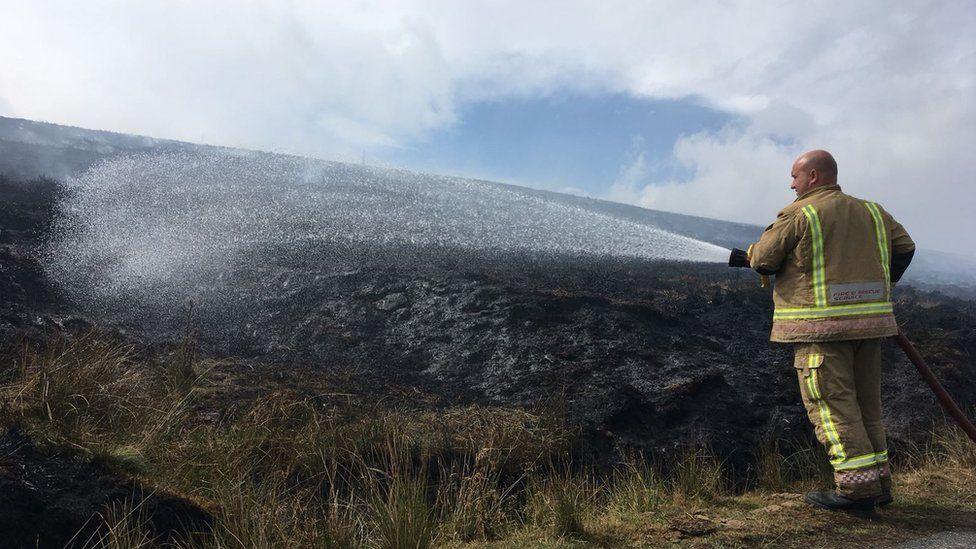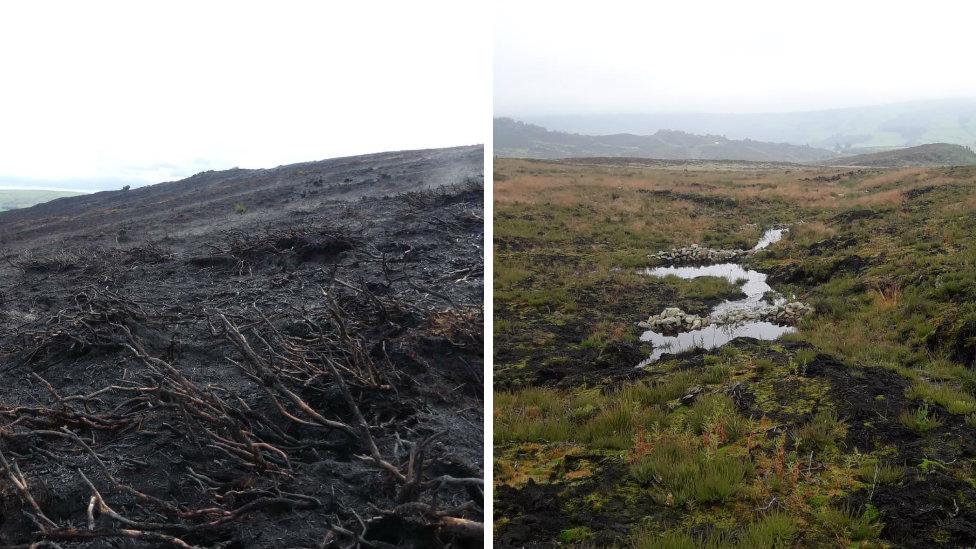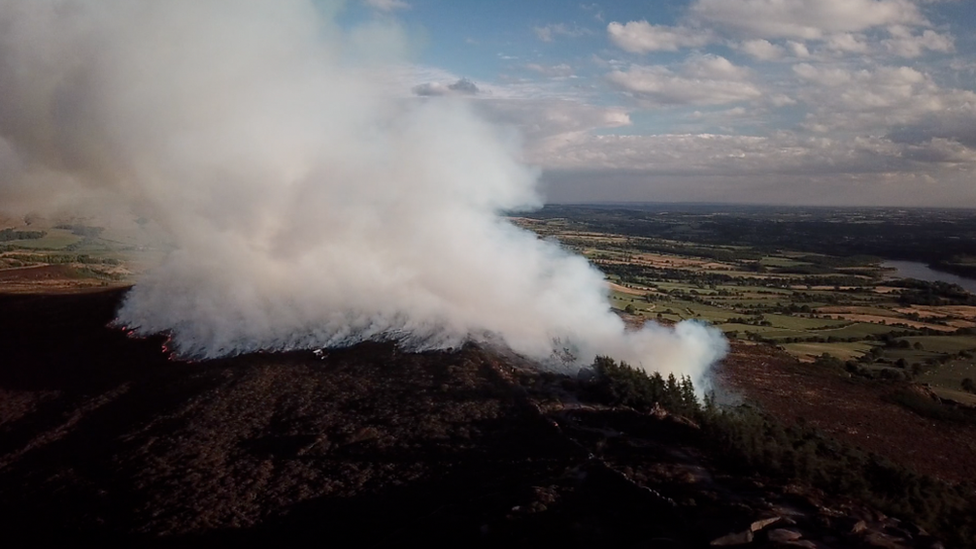Roaches moor fire recovery could take half a century
- Published
Drone footage reveals scale of fire at beauty spot
Restoring part of the Peak District after a huge moorland fire in 2018 could take half a century, conservationists said.
Plants and wildlife have begun returning to the Roaches, however, Staffordshire Wildlife Trust added.
An out-of-control camp fire spread across 200 acres of moorland, in Upper Hulme, Staffordshire.
Jon Rowe, from the trust, said signs of recovery after two years was putting "smiles on our faces".
The fire at The Roaches,, external near Leek, raged for days and left about 20% of the wildlife area blackened and lifeless.

Firefighters spent days battling the blaze in 2018 which they found out had been caused by an out of control camp fire
A study by the Moors for the Future Partnership, external in August revealed the blaze had destroyed 50 years' worth of peat.
Peat bogs store carbon and the partnership calculated the fire released more than 11,000 tonnes of carbon dioxide into the atmosphere.
Over the past two years, Staffordshire Wildlife Trust has been taking rocks to the site by helicopter to build hundreds of dams.
Their aim has been to hold water back and stop the remaining peat being washed away by rain.
Mr Rowe said they and volunteers have also planted thousands of sphagnum mosses, tiny plants which absorb water, start storing carbon and produce peat.

Staffordshire Wildlife Trust said it could take decades for The Roaches to fully recover
However he said, even setting aside the 50 years to restore the peat, it could take almost as long to get wildlife and plants back to the levels seen before the fire.
"For habitats we are talking 25-30, even 40 years to get things cycling again such as heather, young trees, all structures important to wildlife ," Mr Rowe said.
Red grouse have returned to the area to feed on the new growth of heather while patches of cranberry and bilberry have been spotted.
"In 2018, the fire was soul-destroying but we took all that emotion and put it into the repairs," he added.
"It was emotional but as time goes on, seeing things happen like the first sprouts of heather, first patch of cranberry, sphagnum, they put smiles on your face."

Follow BBC West Midlands on Facebook, external, Twitter, external and Instagram, external. Send your story ideas to: newsonline.westmidlands@bbc.co.uk , external
Related topics
- Published23 April 2019
- Published10 August 2018
